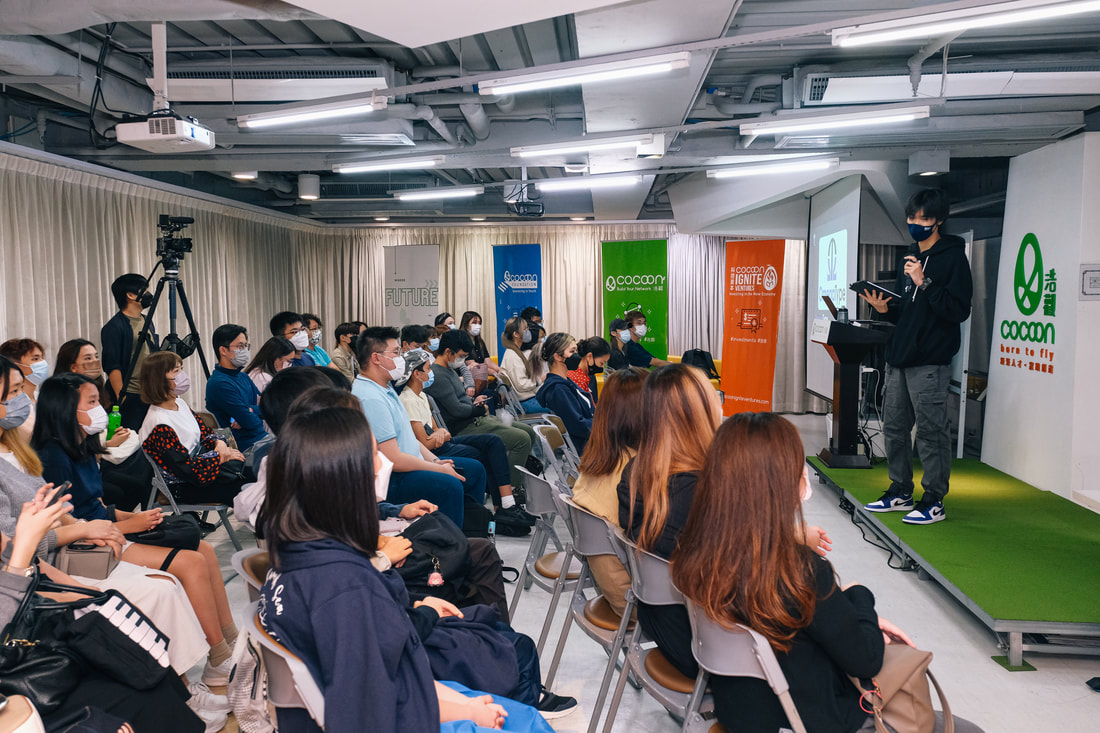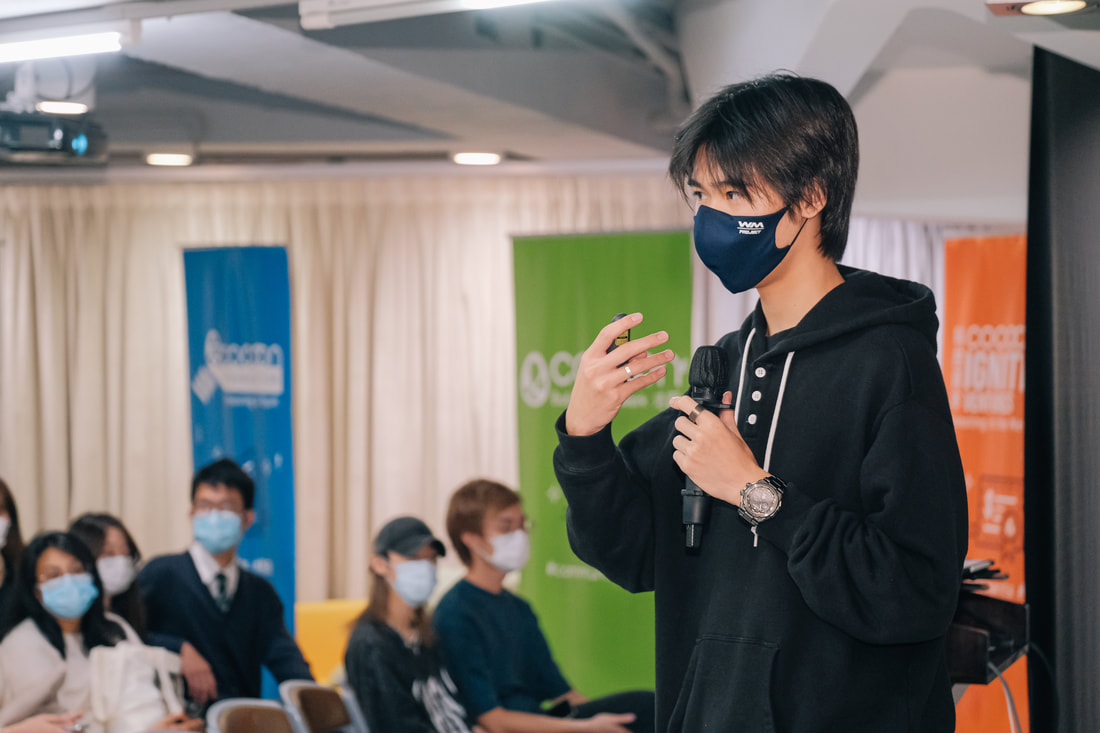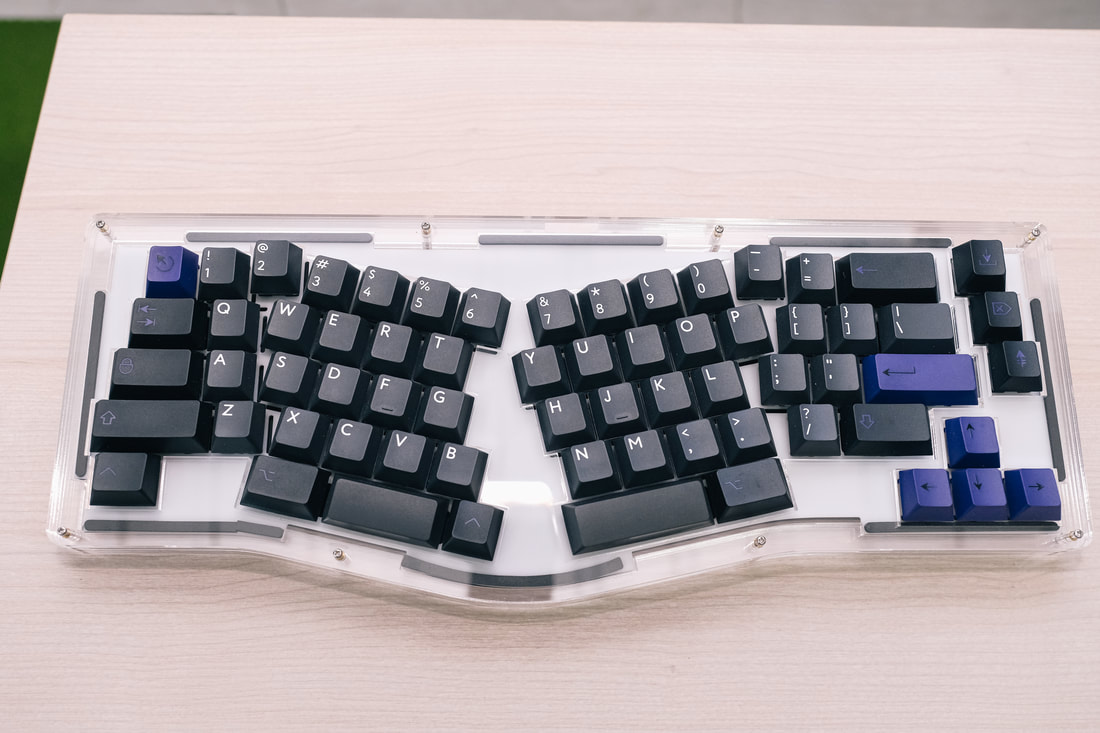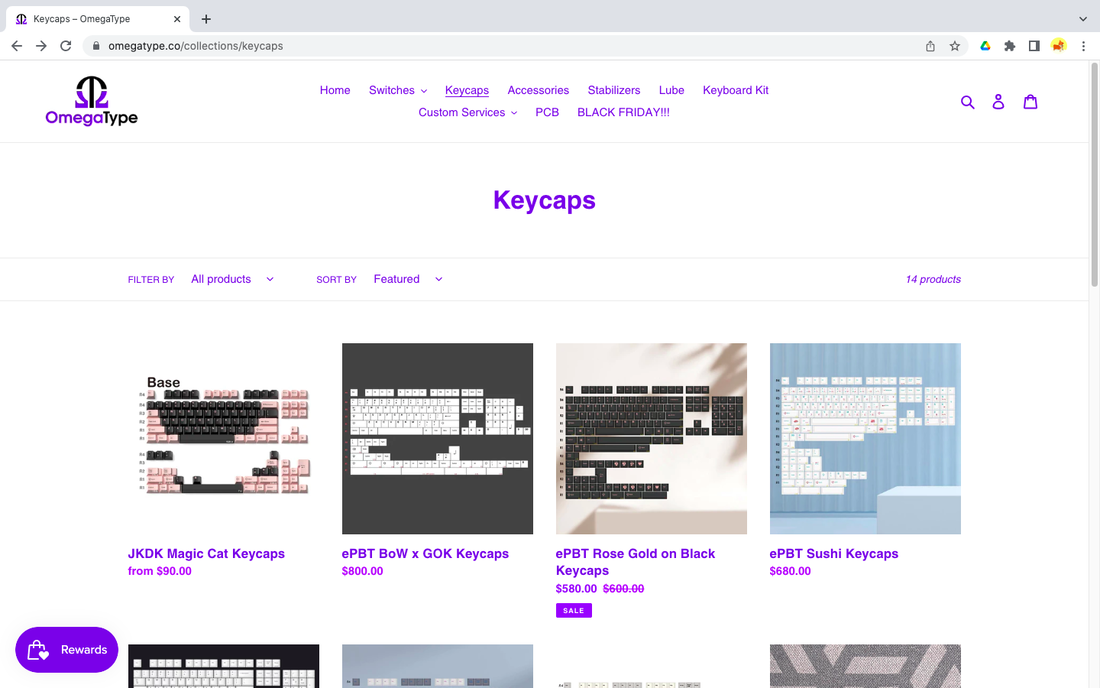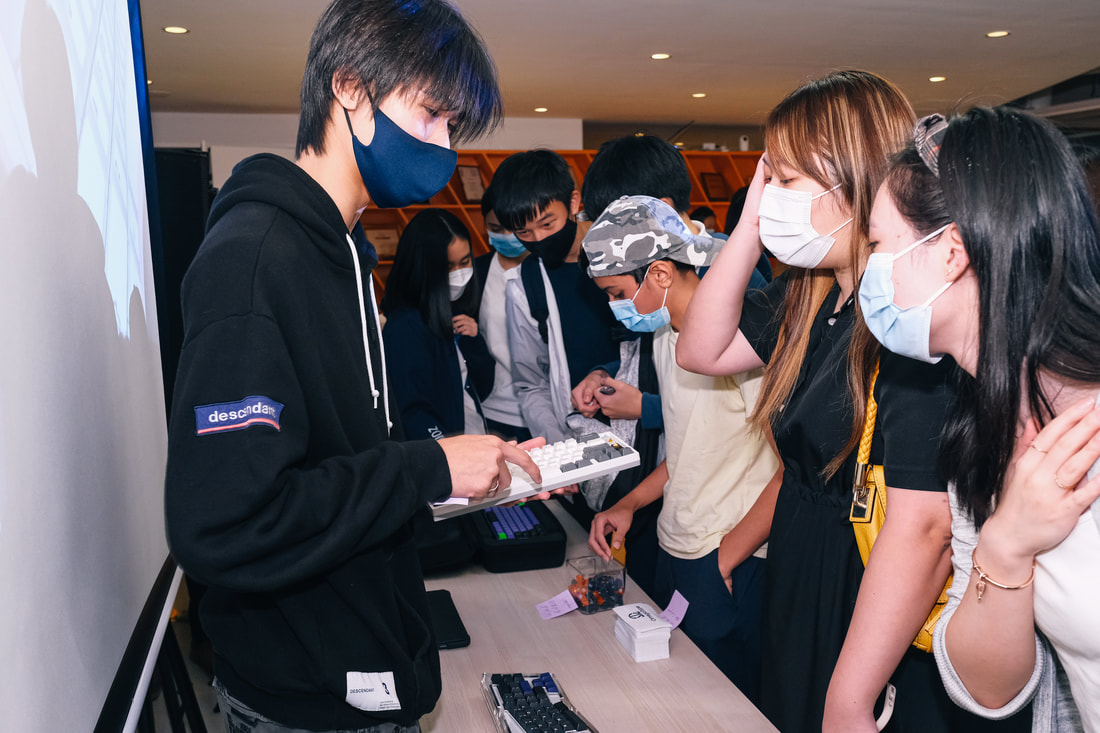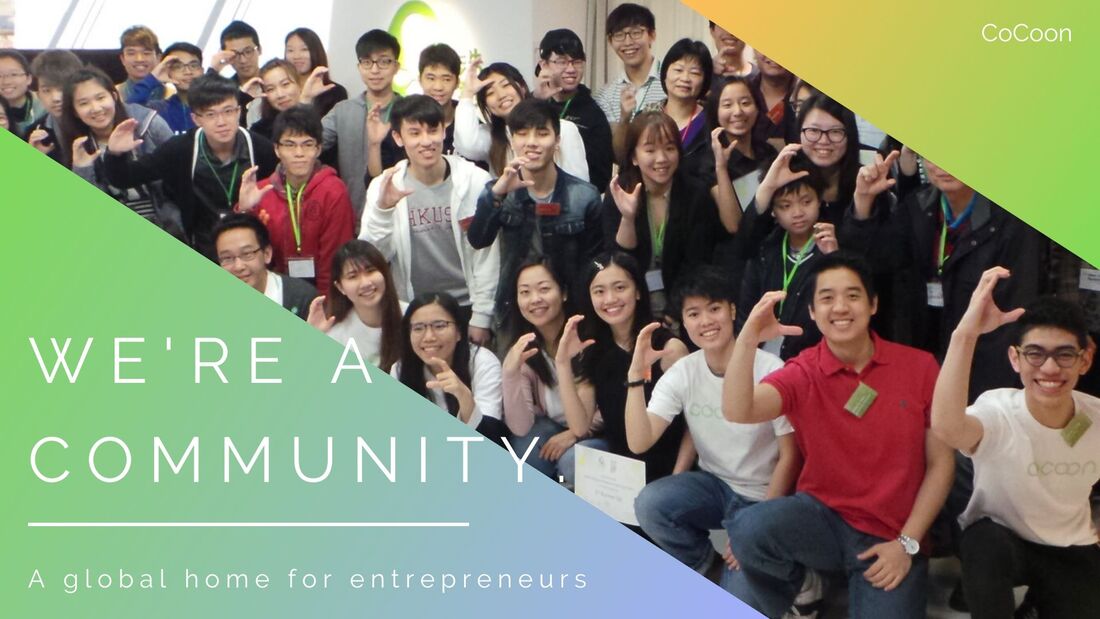#YoungEntrepreneur #Hardware
From Hobby to Opportunity
How young entrepreneur Marcus Tong built a custom hardware and 3D-printing startup making things people love
How young entrepreneur Marcus Tong built a custom hardware and 3D-printing startup making things people love
Summary:
In partnership with Google for Startups, CoCoon’s 92 Express program empowers global entrepreneurs of hardware startups to turn their ideas into reality by leveraging Hong Kong’s supply chain ecosystem.
To support young founders working on hardware startups, we invited entrepreneur and high school student Marcus Tong to share his journey founding OmegaType, a customized keyboards business that has grown from an idea to a $200,000 revenue startup.
In partnership with Google for Startups, CoCoon’s 92 Express program empowers global entrepreneurs of hardware startups to turn their ideas into reality by leveraging Hong Kong’s supply chain ecosystem.
To support young founders working on hardware startups, we invited entrepreneur and high school student Marcus Tong to share his journey founding OmegaType, a customized keyboards business that has grown from an idea to a $200,000 revenue startup.
Founded in 2012, CoCoon is a leading entrepreneurship hub and coworking community in Hong Kong. As the sole partner of Google for Startups in Hong Kong, CoCoon has organized 600+ startup events, engaged 30,000+ participants and its alumni entrepreneurs have raised over $900 million in venture capital funding. In addition, CoCoon Foundation teaches entrepreneurship as a lifeskill to over 4000 high school students across 40 schools every year.
Since 2019, Google for Startups and CoCoon have been collaborating to create 92 Express, a program empowering global founders of hardware startups especially female founders. Through our ecosystem of manufacturing and supply chain partners, hardware founders from around the world can turn their ideas into prototypes, evolve from initial prototype to a solid version 1, or scale from version 1 to mass production.
To broaden the positive impact of 92 Express for young founders and allies of female hardware founders, CoCoon invited Marcus Tong, founder of OmegaType, to share his entrepreneurship journey as a hardware founder while navigating life as a high school student. OmegaType is a business that offers customizable keyboards and components, and the company has grown from a seed idea into a $200,000 revenue business in less than 2 years.
Since 2019, Google for Startups and CoCoon have been collaborating to create 92 Express, a program empowering global founders of hardware startups especially female founders. Through our ecosystem of manufacturing and supply chain partners, hardware founders from around the world can turn their ideas into prototypes, evolve from initial prototype to a solid version 1, or scale from version 1 to mass production.
To broaden the positive impact of 92 Express for young founders and allies of female hardware founders, CoCoon invited Marcus Tong, founder of OmegaType, to share his entrepreneurship journey as a hardware founder while navigating life as a high school student. OmegaType is a business that offers customizable keyboards and components, and the company has grown from a seed idea into a $200,000 revenue business in less than 2 years.
The event took place at our coworking space on November 22, 2022 and was titled “From Hobby to Opportunity”. Attendees ranged from students, hardware enthusiasts to aspiring young entrepreneurs. Here are some key takeaways that Marcus shared that day, which we feel are universal across all hardware startups:
Generating the idea
Marcus shared his own experience coming up with the idea for OmegaType. He was looking to buy a custom keyboard himself, and in the research process, found that prices were exorbitant and time-to-delivery was long. Given Hong Kong’s proximity to manufacturing hubs, Marcus decided to solve the problem himself.
By identifying and sourcing from suppliers directly for keyboard parts and components, Marcus learnt he could assemble a custom keyboard more affordably and quickly. He could also add more value by leveraging 3D printing to create custom components like keycaps to further personalize the keyboard.
Thus OmegaType was born out of the founder’s personal need, similar to many startups including mega successes like Airbnb and Doordash. When confronted with a problem they themselves face, entrepreneurs are able to empathize with the pain points and design a solution to address those exact pain points.
Achieving product-market fit
With only early market signals, how do entrepreneurs know enough customers will come?
During the earlier days, Marcus received about $80 - $100 worth of customer orders a week. It was not an enormous amount of purchases, but customers kept coming. They came both in the form of new customers who heard about OmegaType through word of mouth, as well as returning customers buying more as keyboard aficionados or for others as gifts.
That was when Marcus developed the conviction that his customized keyboards business may be tapping into unmet customer demand. This was just the tip of an iceberg, and there was potential to grow the business significantly bigger than early sales.
Adapting to competition
Initially, Marcus was selling his keyboards on Carousell, an Asia-focused e-commerce marketplace similar to Amazon or eBay. But soon he discovered it was hard to build a standout brand on Carousell. When users searched for custom keyboards, search results would show both OmegaType and his competitors’ products on the same page. Carousell is a marketplace, and all merchants in the same category compete for customers’ attention and wallets.
Marcus knew in order to build OmegaType into its own brand, he had to play a different game. So he stopped selling on Carousell and created a dedicated e-commerce store using Shopify. From that point forward, OmegaType became its own e-commerce website at https://omegatype.co . The benefit is he would no longer need to compete with other brands directly in the same marketplace, but the downside is he would need to do more marketing and increase customer traffic. He could no longer rely on a marketplace like Carousell bringing him the customers.
Achieving product-market fit
With only early market signals, how do entrepreneurs know enough customers will come?
During the earlier days, Marcus received about $80 - $100 worth of customer orders a week. It was not an enormous amount of purchases, but customers kept coming. They came both in the form of new customers who heard about OmegaType through word of mouth, as well as returning customers buying more as keyboard aficionados or for others as gifts.
That was when Marcus developed the conviction that his customized keyboards business may be tapping into unmet customer demand. This was just the tip of an iceberg, and there was potential to grow the business significantly bigger than early sales.
Adapting to competition
Initially, Marcus was selling his keyboards on Carousell, an Asia-focused e-commerce marketplace similar to Amazon or eBay. But soon he discovered it was hard to build a standout brand on Carousell. When users searched for custom keyboards, search results would show both OmegaType and his competitors’ products on the same page. Carousell is a marketplace, and all merchants in the same category compete for customers’ attention and wallets.
Marcus knew in order to build OmegaType into its own brand, he had to play a different game. So he stopped selling on Carousell and created a dedicated e-commerce store using Shopify. From that point forward, OmegaType became its own e-commerce website at https://omegatype.co . The benefit is he would no longer need to compete with other brands directly in the same marketplace, but the downside is he would need to do more marketing and increase customer traffic. He could no longer rely on a marketplace like Carousell bringing him the customers.
Marketing
As a student, his seed capital was around $760 in lai see (“red pockets”) money, so he could not afford to buy online advertising. So instead, Marcus got creative about marketing campaigns. He implemented a referral program where both the referrer and the referred friend could get discounts to OmegaType products. Moreover, he sought out partnerships with content creators, such as Twitch streamers who would promote his product to viewers and viewers would get a discount code specific to the streamer.
Managing inventory
If you are a viewer of Shark Tank the entrepreneurs’ show on ABC, you will know many entrepreneurs who pitch on the show ask for investments from the Sharks to fund inventory. When you sell a physical product, you will need to stock up a certain quantity of it, so that when customers buy online, you can immediately ship them the product. The challenge comes when you have various versions of your products – different sizes, different colors, different configurations. How much do you stock for each version?
Inventory – how much stock is kept for each product - is the Achilles Heel for startups. If your inventory is low, you cannot satisfy customer demands fast enough. If your inventory is high, your money is tied up in the products and if you cannot sell them fast enough, you cannot recoup your money and the business runs into cashflow problems.
Early on, Marcus decided he would adopt a “just-in-time inventory” model to lower inventory levels and maintain healthy cashflow. Instead of stocking up on inventory in advance, he would order parts and components from suppliers only after customer orders are confirmed. While he would pay higher cost per part (because he is not doing a bulk-purchase in advance), he knew he would save money for the overall business. In an industry where customers are used to very long wait times for their custom keycaps or keyboards, the additional 1 – 2 weeks in just-in-time inventory would be more than offset by Hong Kong’s proximity to supply chain hubs.
Into the Future
Looking forward, Marcus wants to integrate more and more 3D printing into his products to the extent that technology allows. While some of the components and parts for custom keyboards will likely still require conventional manufacturing methods, not just technically but also economically, he believes in a world where more customization of products can open up how people express their own taste and preferences, as well as identities and values.
For Marcus, his entrepreneurship journey has been a process of self-discovery, experimentation and learning from mistakes. It is a real-world test for his grit and adaptiveness. At CoCoon, we hope to continue collaborating with young entrepreneurs like Marcus. We hope to keep sharing best practices. We will keep racing ahead and never stop in our mission to empower global entrepreneurs innovating in hardware.
For Marcus, his entrepreneurship journey has been a process of self-discovery, experimentation and learning from mistakes. It is a real-world test for his grit and adaptiveness. At CoCoon, we hope to continue collaborating with young entrepreneurs like Marcus. We hope to keep sharing best practices. We will keep racing ahead and never stop in our mission to empower global entrepreneurs innovating in hardware.

